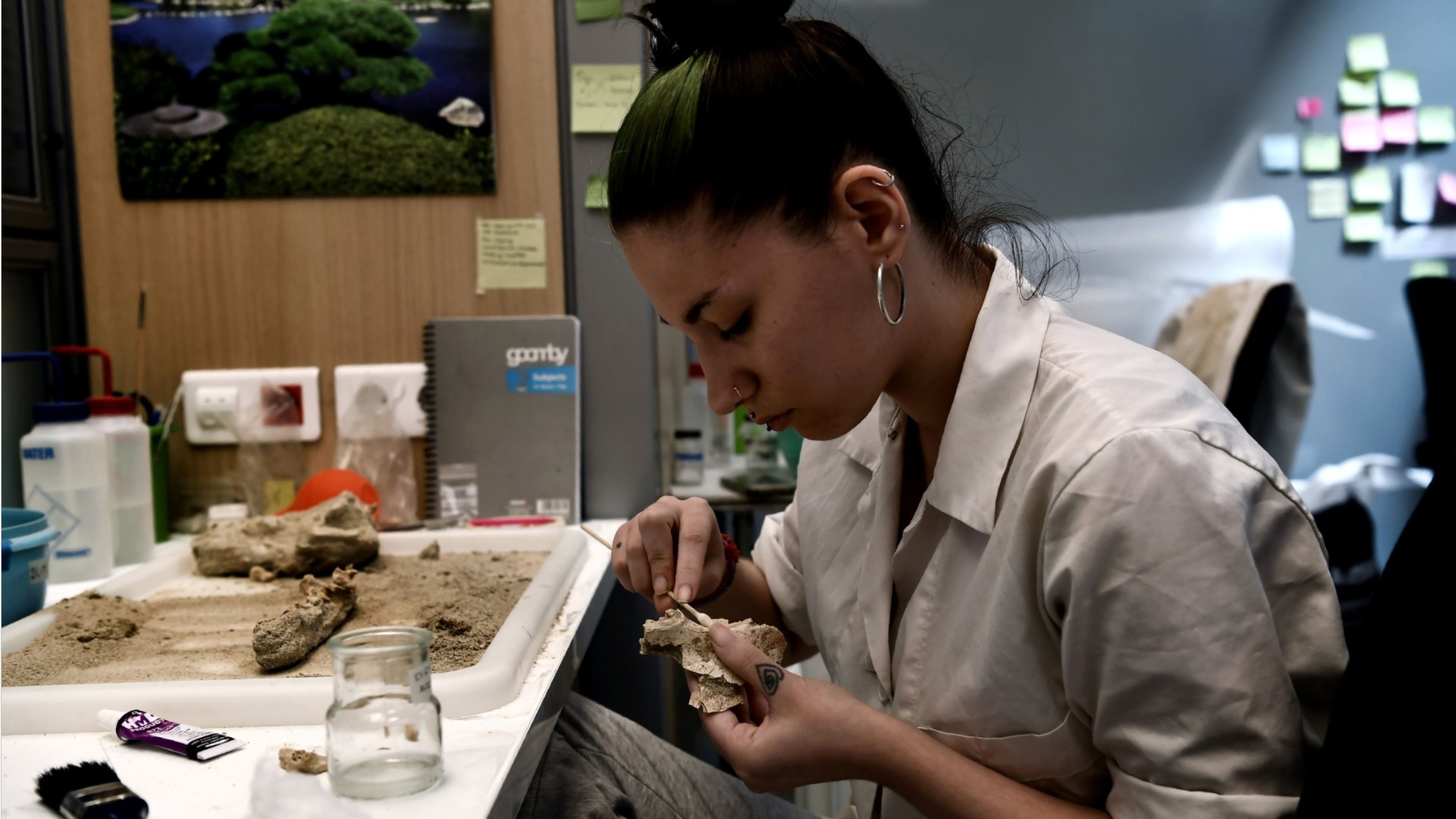Anthropologists & Archeologists
Archaeologist, Communication and Folklore Specialist, Forensic Anthropologist, Researcher
 Select a military branch to see samples.
Select a military branch to see samples.
Historian; Historian Apprentice; Historian Craftsman; Historian Helper; Historian Journeyman; Historian Manager; Historian Superintendent
No similar titles were found.
No similar titles were found.
Historian
Historical Officer
No similar titles were found.
What they do:
Study the origin, development, and behavior of human beings. May study the way of life, language, or physical characteristics of people in various parts of the world. May engage in systematic recovery and examination of material evidence, such as tools or pottery remaining from past human cultures, in order to determine the history, customs, and living habits of earlier civilizations.
On the job, you would:
- Collect information and make judgments through observation, interviews, and review of documents.
- Teach or mentor undergraduate and graduate students in anthropology or archeology.
- Write about and present research findings for a variety of specialized and general audiences.
Knowledge
Math and Science
- sociology and anthropology
- geography
Arts and Humanities
- English language
- history and archeology
Education and Training
- teaching and course design
Communications
- multimedia
Skills
Basic Skills
- talking to others
- writing things for co-workers or customers
Problem Solving
- noticing a problem and figuring out the best way to solve it
People and Technology Systems
- thinking about the pros and cons of different options and picking the best one
- figuring out how a system should work and how changes in the future will affect it
Abilities
Verbal
- communicate by speaking
- communicate by writing
Ideas and Logic
- use rules to solve problems
- make general rules or come up with answers from lots of detailed information
Visual Understanding
- see hidden patterns
Personality
People interested in this work like activities that include ideas, thinking, and figuring things out.
They do well at jobs that need:
- Innovation
- Adaptability
- Achievement Orientation
- Intellectual Curiosity
- Attention to Detail
- Dependability
Technology
You might use software like this on the job:
Analytical or scientific software
- IBM SPSS Statistics
- The MathWorks MATLAB
Presentation software
- Microsoft PowerPoint
Geographic information system
- ESRI ArcGIS software
- Geographic information system GIS software
Education
Education: (rated 5 of 5)
doctoral degree or
master's degree
usually needed
master's degree
usually needed
Job Outlook
Average
New job opportunities are likely in the future.
Explore More
- Anthropology & Archeology Teachers, Postsecondary
- Area, Ethnic, & Cultural Studies Teachers, Postsecondary
- Geographers
- Historians
- Sociologists
You might like a career in one of these industries:
See more details at O*NET OnLine about Anthropologists & Archeologists.






